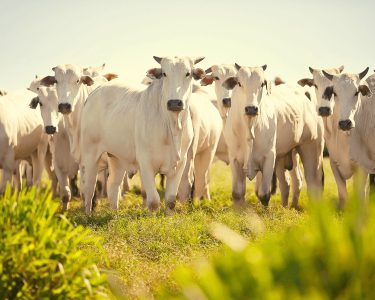Start-up seeks to create an additive to reduce livestock methane emissions.
Humanity is paying increasing attention to global warming. This rising interest, is aimed at understanding this phenomenon, evaluating its impacts, and finding different strategies to tackle it.
Ruminants (such as cows, sheep and goats) are often considered big contributors to climate change due to their methane (CH4), emissions.
Methane is a potent GHG, even more so than carbon dioxide (CO2). It is estimated that one-third of methane emissions come from livestock (entirely, not just cattle).
The project
The development in question is based on the use of a component of the algae Asparagopsis taxiformis (red algae of cosmopolitan distribution) that has anti methanogenic properties. The inclusion of it in cattle feed could reduce methane emissions by percentages above 90%, according to sources from the same company.
The project has captured the attention of major investors, including Bill Gates, who invested USD 12,000,000 through his organization Breakthrough Energy Ventures.
“Although cows are a major source of greenhouse gases, livestock farming remains one of the cheapest sources of protein globally, meaning that technologies that can reduce emissions from the existing livestock supply chain today and in the future are critical,” said a manager at Gates’ fund.
From the start-up they plan to have the first batches of the additive on the market by the end of this year. Currently, they are conducting pilot tests in 4 countries.
You may be interested in Methane and the biogenic carbon cycle
